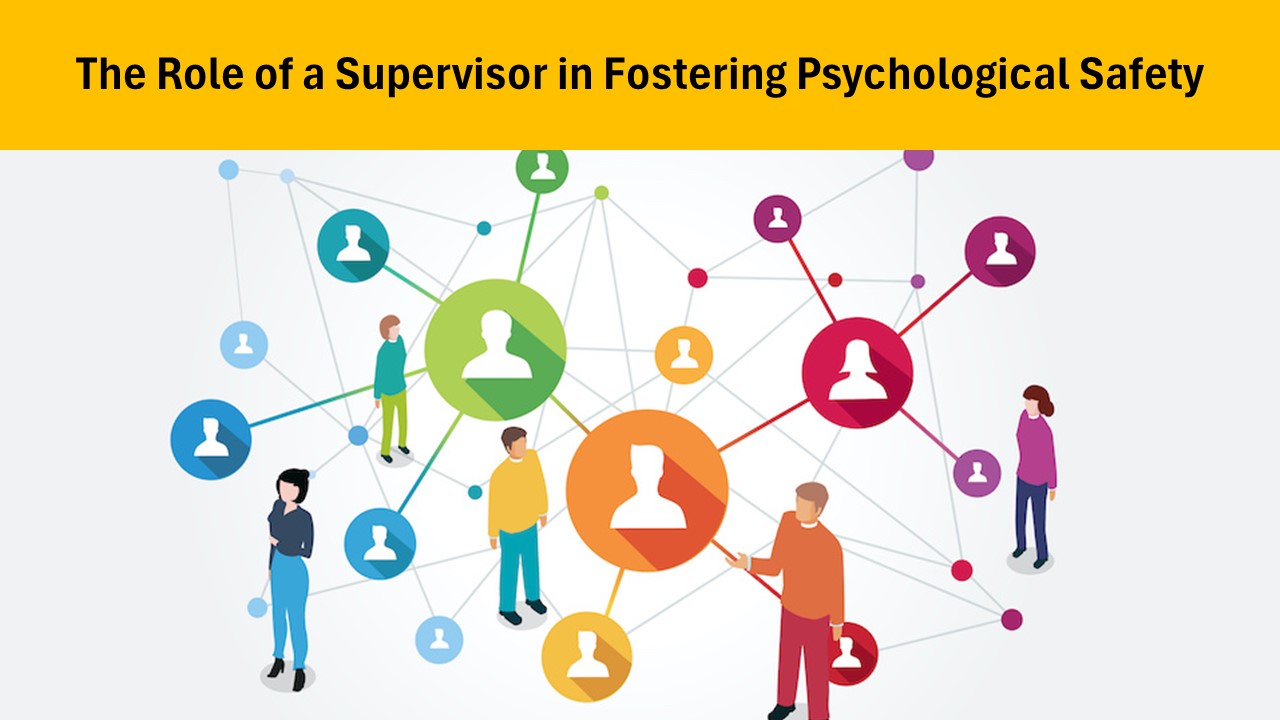Your cart is currently empty!

The Supervisor’s Influence on Workplace Culture
Supervisors are often the linchpin between the organization’s strategic objectives and the team’s daily activities. They set the tone for the team’s communication style, conflict resolution approaches, and overall atmosphere.
Supervisors play a pivotal role in shaping the psychological safety of their teams. Their actions and attitudes can significantly influence whether employees feel safe to speak up, share ideas, and report errors. By understanding and embracing their role, supervisors can create an environment that fosters open communication, innovation, and error reporting. This not only enhances team performance but also contributes to the overall health and success of the organization.
5 Ways Supervisors Influence Workplace Culture:

Modeling Behavior
Leadership is as much about influence as it is about authority. Supervisors who model the behaviors of openness, humility, and curiosity pave the way for their teams to follow suit. By admitting their own mistakes, asking for feedback, and showing appreciation for diverse viewpoints, supervisors demonstrate that it’s safe for others to do the same.
Setting Expectations
Clear communication from supervisors about expectations regarding teamwork, communication, and error handling can help establish norms that support psychological safety. When supervisors explicitly state that they value openness and learning from mistakes, it encourages team members to embody these values in their daily work.
Providing Support
Supportive supervisors provide a safety net for employees to take risks. This means offering help when needed, standing up for the team in front of higher management, and providing resources for learning and development. Knowing they have their supervisor’s support, employees are more likely to venture out of their comfort zones and engage in innovative problem-solving.
Encouraging Engagement
Supervisors foster psychological safety by encouraging team members to voice their ideas and concerns and by genuinely listening to them. This involves not only giving employees the floor in meetings but also actively soliciting their input and showing appreciation for their contributions, thereby reinforcing that their voices matter.
Responding Constructively to Failure
The manner in which supervisors respond to failures and mistakes is perhaps the most significant factor influencing psychological safety. By focusing on learning rather than assigning blame when errors occur, supervisors can significantly reduce the fear associated with failure, encouraging team members to own up to and learn from their mistakes.
The Path Forward
The journey to creating a psychologically safe workplace is continuous and evolving. Supervisors must remain committed to personal growth and reflection, regularly assessing how their behaviors and decisions impact the psychological safety of their teams. This can involve seeking feedback from team members, participating in leadership development programs, and staying informed about best practices in creating inclusive and supportive work environments.
Ultimately, the role of the supervisor in fostering psychological safety is about leveraging their position to empower others, create trust, and facilitate open communication. By doing so, supervisors not only enhance the well-being and satisfaction of their employees but also drive the innovation, resilience, and performance that are critical for organizational success. In embracing this role, supervisors can transform the workplace culture into one where everyone feels valued, heard, and empowered to contribute their best.
